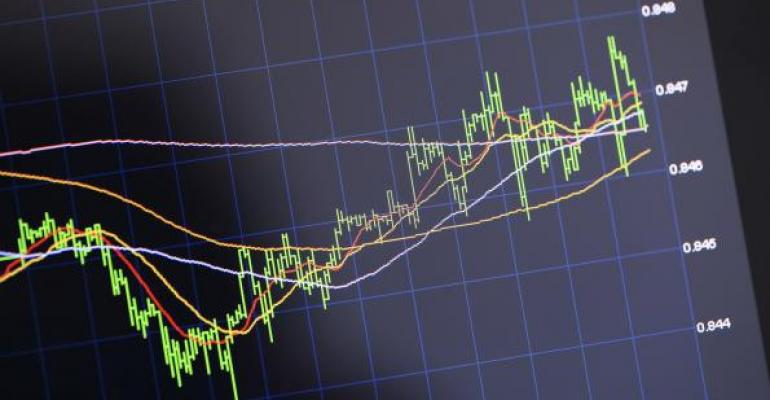Here it is. The end of another year. Time to look back and salute auld lang syne. But, if you’re an investor in liquid alternatives, you learned to keep aspirin alongside your champagne ahead of the final closing bell of 2015.
When we assessed the performance of 16 diverse alternative investment ETFs at this time in 2014 (see “The Best and Worst Alternative Investment ETFs), we found only one — an actively traded real estate portfolio — topping the performance of the S&P 500. In 2015, there were four outperformers.
Good news? Sort of.
In 2014, the blue chip index was cooking along with a nearly 15 percent gain. Now, the S&P was flat for the previous year. The performance bar’s been lowered BIG time. But outdoing the broad market’s gain isn’t what liquid alts are really designed to do. They’re supposed to provide uncorrelated returns. And on that score, alternative ETFs are pretty much doing what they did in 2014. The funds averaged a .24 correlation to the S&P 500 that year. The mean was .25 in 2015.
Still, alt funds have struggled. In 2014, the 15 extant funds produced a mean 1.6 percent gain with a volatility of 9.1 percent. In 2015, they lost 2.5 percent while cranking a 13.9 percent standard deviation.
Most interesting, though, is the reversal of fortune for 2014's worst performers. The QuantShares US Market Neutral Momentum (NYSE Arca: MOM) took 15th place in 2014's 16-fund derby with an 8.4 percent loss. MOM comes in first now with a 23.5 percent gain, a real bottom-to-top turnaround when you consider that 2014’s last-place ETF — the ProShares 30 Year TIPS/TSY Spread (NYSE Arca: FINF) — has since been shuttered.
Coming in second in 2015 was the ProShares Global Listed Private Equity (BATS: PEX), a fund that limped across the finish line in 14th place in 2014 with a 5.4 percent loss.
| 2015 Rank | 2014 Rank | Exposure | Ticker | Total Return (%) | Correlation to SPX |
| 1 | 15 | Equity Market Neutral - Momentum | MOM | 23.5 | -.01 |
| 2 | 14 | Private Equity | PEX | 3.5 | .45 |
| 3 | 1 | Real Estate | PSR | 1.0 | .51 |
| 4 | 4 | Merger Arbitrage | MNA | 0.7 | .41 |
| 5 | 3 | High Yield Long/Short | HYLS | -0.7 | .45 |
| 6 | 8 | Hedged Equity | QEH | -2.0 | .19 |
| 7 | 7 | Absolute Return | CPI | -2.3 | .26 |
| 8 | 6 | Multi-Strategy | QAI | -2.4 | .67 |
| 9 | 11 | Global Macro | MCRO | -4.0 | .43 |
| 10 | 5 | Managed Futures | WDTI | -4.1 | -.11 |
| 11 | 9 | Currency Carry Trade | DBV | -9.6 | .46 |
| 12 | 16 | Inflation | RINF | -9.6 | .04 |
| 13 | 10 | Gold | GLD | -10.0 | -.04 |
| 14 | 12 | Equity Market Neutral - Value | CHEP | -10.3 | .01 |
| 15 | 13 | Equity Market Neutral - Size | SIZ | -12.2 | -.01 |
| S&P 500 | SPX | 0.1 | -- |
Aside from these shifts, there wasn’t much movement in the table though the WisdomTree Managed Futures Strategy ETF (NYSE Arca: WDTI) moved up five notches with its 4.1 percent loss. Oddly enough, 2014's 5.4 percent gain put WDTI in a rather lowly 10th place.
Will history repeat? Will 2015's last be this year’s first? For that to happen, you gotta believe in small stocks. Small stocks do tend to outperform large caps in rising rate environments, but I’d still keep that aspirin handy.
Brad Zigler is REP./WealthManagement's Alternative Investments Editor. Previously, he was the head of marketing, research and education for the Pacific Exchange's (now NYSE Arca) option market and the iShares complex of exchange traded funds.





